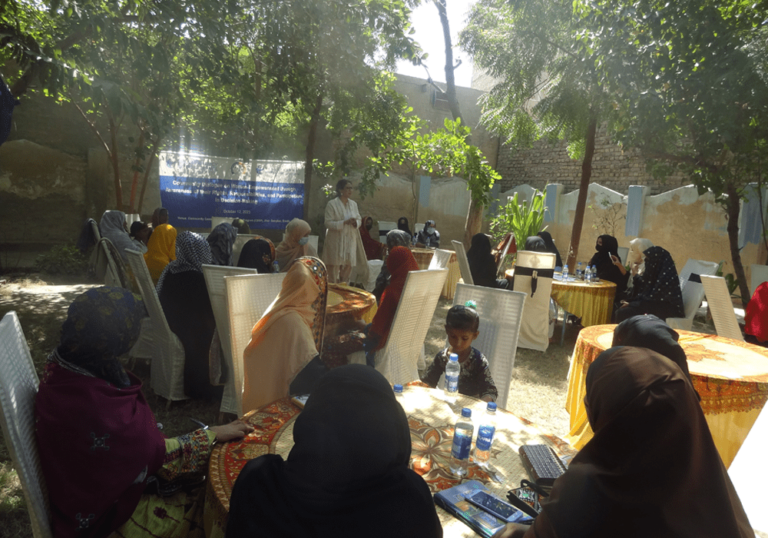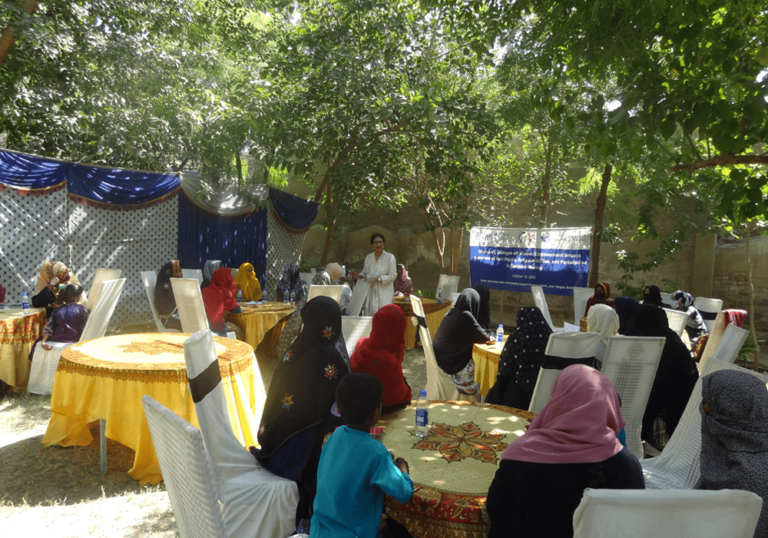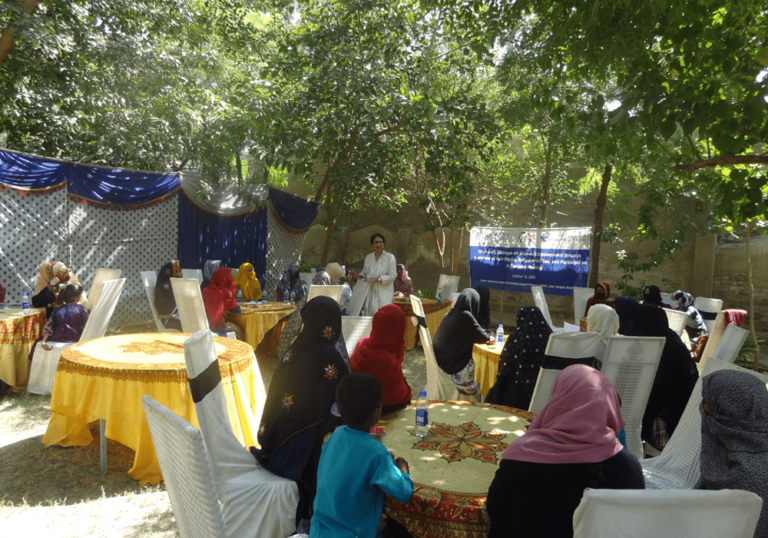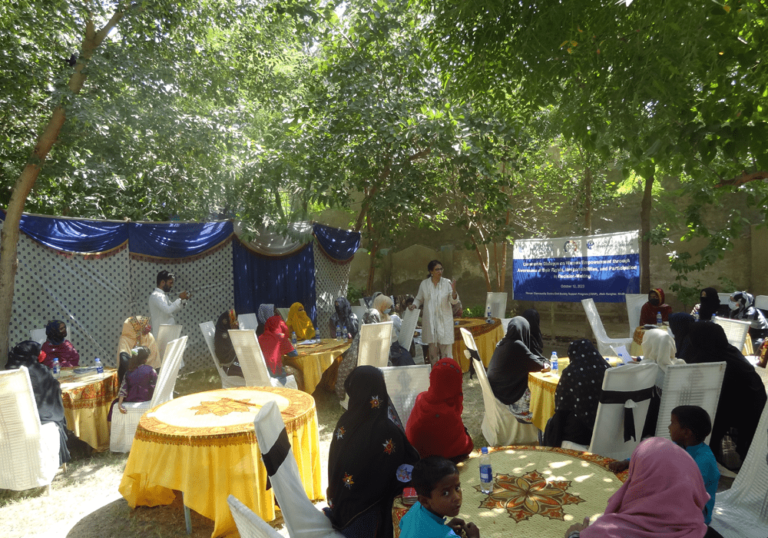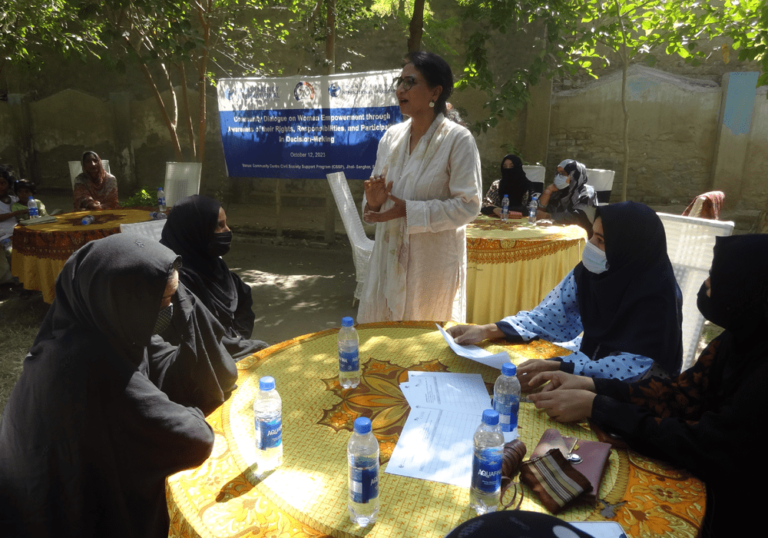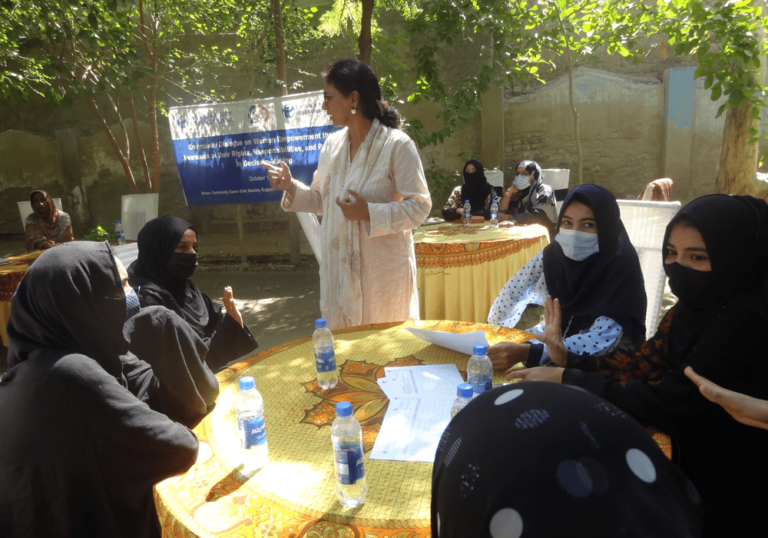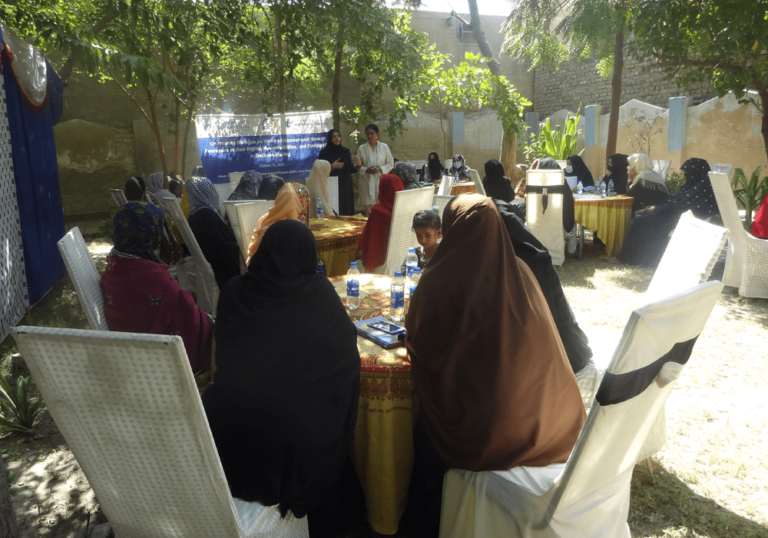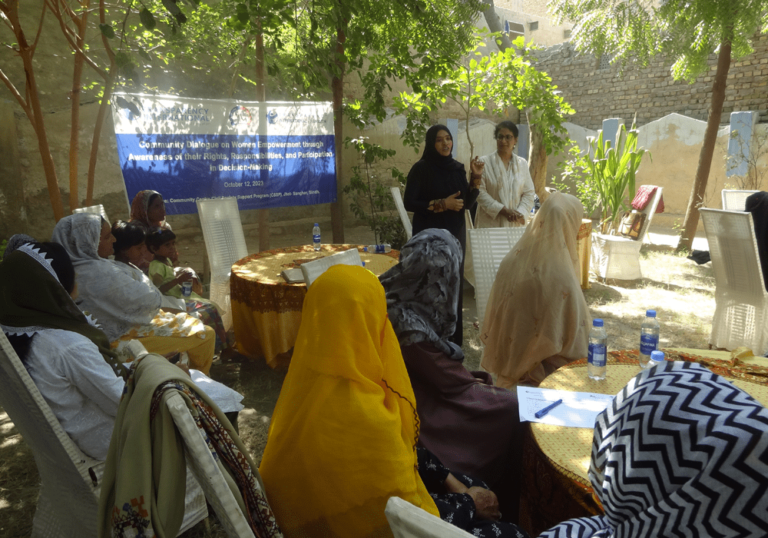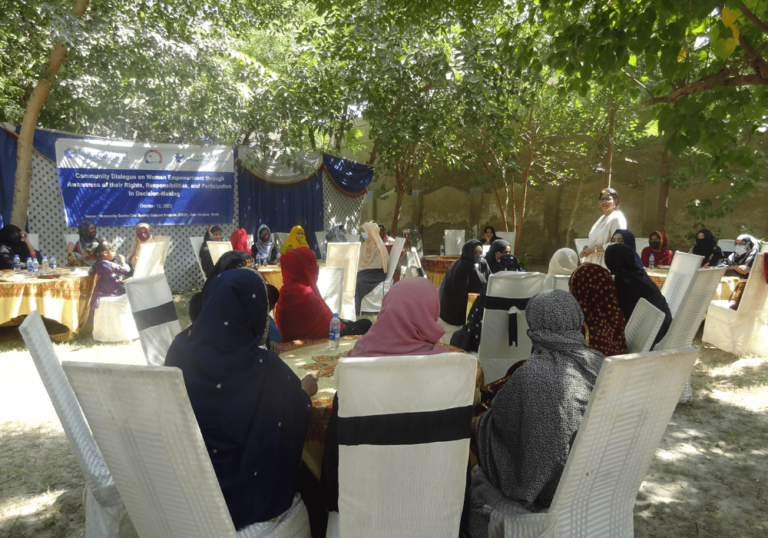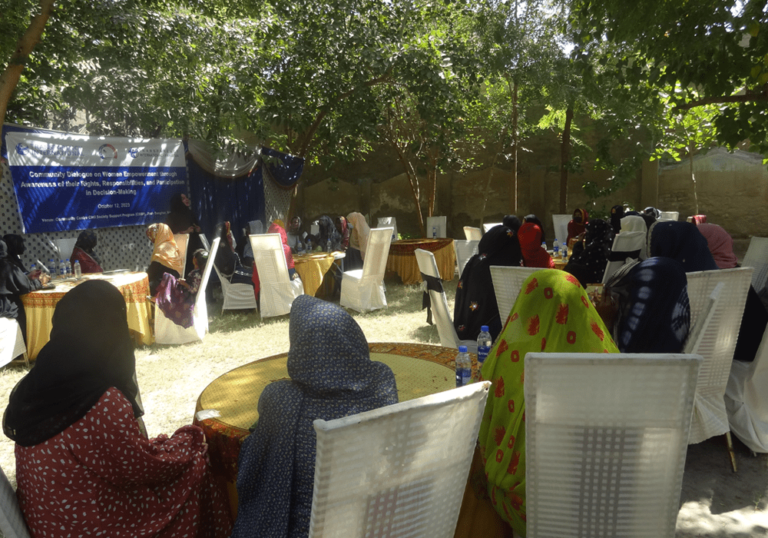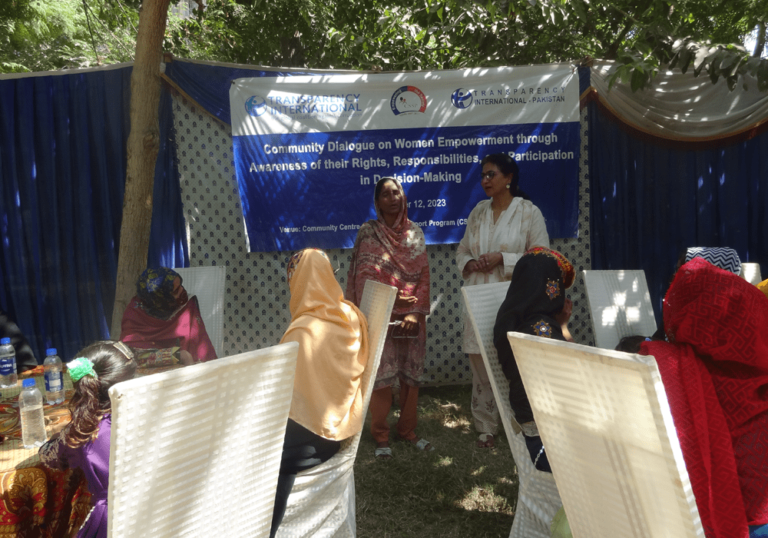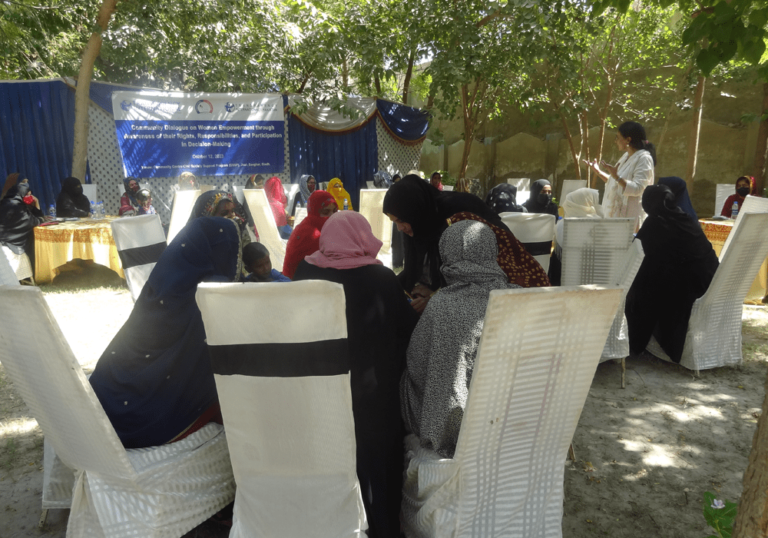- Home
- Community Dialogue on Women’s Empowerment through Awareness of Their Rights, Responsibilities, and Participation in Decision-Making
Community Dialogue on Women’s Empowerment through Awareness of Their Rights, Responsibilities, and Participation in Decision-Making
Title: Community Dialogue on Women’s Empowerment through Awareness of Their Rights, Responsibilities, and Participation in Decision-Making
Venue: Jhol, District Sanghar, Sindh Province
Date: Thursday, 12th October, 2023
On the occasion of the Community Dialogue, Transparency International Pakistan, in collaboration with the Civil Society Support Program, organized an event in Jhol, Sanwan, District Sanghar, Sindh on Thursday, October 12, 2023. The main aim of this community dialogue was to raise awareness about gender-related issues and disparities, women’s rights, and to encourage their active participation in political decision-making.
The Community Dialogue was attended by 55 female youth and community women from the vocational center. The event began with the recitation of verses from the Holy Quran.
Following the recitation, Ms. Nasreen Memon, the Gender Resource Person at Transparency International Pakistan, shed light on the far-reaching consequences of corruption on women. She outlined how a range of unethical practices and behaviors serve as formidable hurdles, impeding women’s ability to fully enjoy their civic, social, and economic rights. These obstacles are exacerbated by a lack of awareness and entrenched societal norms, traditions, and beliefs that conspire to create a challenging environment for women when it comes to dealing with corruption. Ms. Memon further provided an insightful analysis of the distinct forms of corruption that disproportionately affect women, delving into the specifics of these gender-related challenges.
During the community dialogue, the discussion turned towards the crucial issue of the usage of social media and its negative impact, especially on females. Some participants, particularly female youth, shared their own personal stories and talked about their experiences regarding social media issues and blackmail through it. Ms. Nasim Arain discussed the story of her village, where the usage of social media for blackmailing women is spreading.
Ms. Nasreen explained that this is also a form of gender-based corruption and that it is causing many problems in our lives. It has made people be mean to each other online, invade our privacy, and make us feel bad about ourselves when we see perfect pictures on Instagram. It has also made people believe in false information and argue a lot on Facebook and Twitter. Using social media too much can make us feel really sad and worried. So, while social media is good for some things, it has also brought lots of bad things, and we need to be careful when we use it.
Furthermore, she shared that blackmailing through social media typically involves exploiting sensitive or compromising information, such as personal photos or messages, to coerce the victim into compliance. Perpetrators may threaten to publicly disclose this information unless the victim meets their demands, which could range from monetary payments to specific actions. This malicious act leverages the interconnected and often unregulated nature of social platforms, where personal information can be easily obtained and used as a weapon for manipulation, extortion, or harassment, causing significant harm to the victims involved and carrying legal consequences in many jurisdictions.
When someone uses social media to blackmail a woman, they are typically forcing or scaring her into doing things by threatening to reveal her private messages or pictures. This is a serious crime that invades her privacy and hurts her. If this happens, the person being blackmailed should tell the police right away. It’s also a good idea to keep proof of the blackmail. It’s important for the victim to talk to friends, family, or professionals who can help keep her safe and take the right legal steps against the person doing the blackmail.
Ms. Shakeela Baloch, who leads the Civil Society Support Program (CSSP) Organization, talked about how to vote, register as a voter, find voter lists, and complain if there are issues. She stressed how important it is to make informed decisions when voting.
Towards the end, Ms. Nasreen explained the TI Pakistan Legal Advice Centre (ALAC) and how it provides free legal advice to people and communities who need help with their problems. She encouraged everyone to use this service if they have legal issues.
To wrap it up, the women in the community and the organizations they work with thanked TI Pakistan for organizing this helpful conversation.


